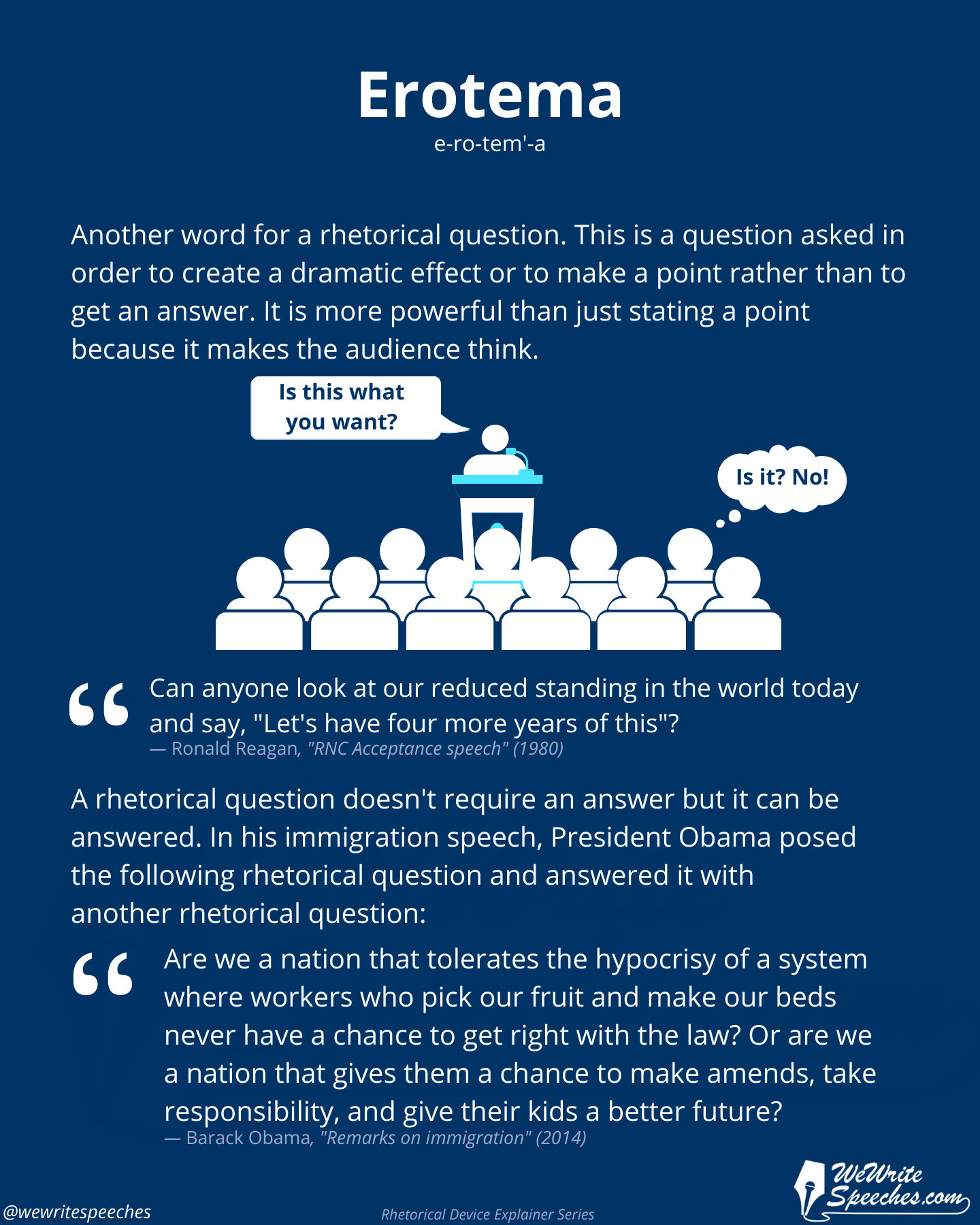Rhetorical Device: Erotema
A rhetorical question (also known as erotema) is a question that does not require an answer. It is asked in order to create a dramatic effect or to make a point rather than to get an answer (although it can be answered). When used properly, rhetorical questions can be an effective tool in engaging the audience and driving home your points. They can also be used to spark curiosity in the audience, encouraging them to think more deeply about a topic. Finally, by using rhetorical questions, the speaker can create a more personal connection with their audience, allowing them to connect with the audience on a more emotional level.
Examples
The world is a much smaller place now that we are living through the biggest revolution in the history of the world in terms of technology, telecommunications and transport. We are therefore in a stronger position to shape that world, particularly in this very historic week – who could have dreamt that the whole of Europe would be together? Given that it is a smaller world and that we are in a stronger position to shape it, the European Union should decide that our first objective in this new century is a world in which there is no longer any war or conflict. John Hume, "Final speech by John Hume to the European Parliament" (4 May 2004)
The exercise of these rights should not cost one single American citizen his reputation or his right to a livelihood nor should he be in danger of losing his reputation or livelihood merely because he happens to know someone who holds unpopular beliefs. Who of us doesn’t? Margaret Chase Smith, "Declaration of Conscience" (1 June 1950)

Multiple rhetorical questions can be arranged so as to compound their effect. In the following example President Reagan used three questions with implied "no" answers, to hammer home his message.
Can anyone look at the record of this Administration and say, "Well done"?
Can anyone compare the state of our economy when the Carter Administration took office with where we are today and say, "Keep up the good work"?
Can anyone look at our reduced standing in the world today and say, "Let's have four more years of this"? Ronald Reagan, "1980 Republican National Convention Acceptance Address" (17 July 1980)
A rhetorical question doesn't require an answer but it can be answered. In his immigration speech, President Obama posed the following rhetorical questions and answered them with more rhetorical questions (making a No/Yes, No/Yes, No/Yes parallel structure):
Are we a nation that tolerates the hypocrisy of a system where workers who pick our fruit and make our beds never have a chance to get right with the law? Or are we a nation that gives them a chance to make amends, take responsibility, and give their kids a better future?
Are we a nation that accepts the cruelty of ripping children from their parents’ arms? Or are we a nation that values families, and works together to keep them together?
Are we a nation that educates the world’s best and brightest in our universities, only to send them home to create businesses in countries that compete against us? Or are we a nation that encourages them to stay and create jobs here, create businesses here, create industries right here in America? Barack Obama, "Remarks by the President in Address to the Nation on Immigration" (20 November 2014)